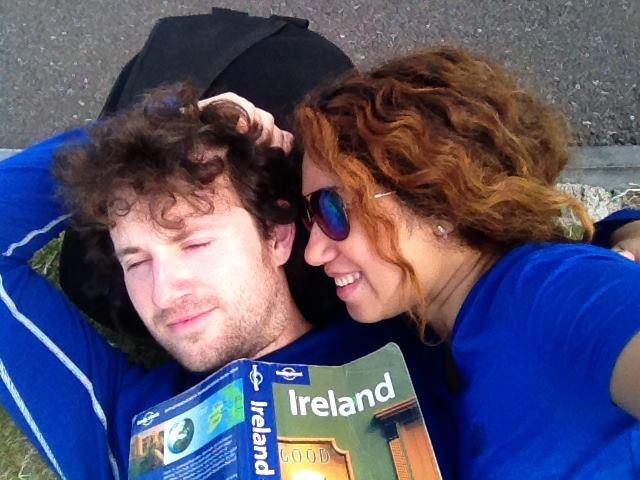22 Common Travel Scams In Southeast Asia (And How to Avoid Them)
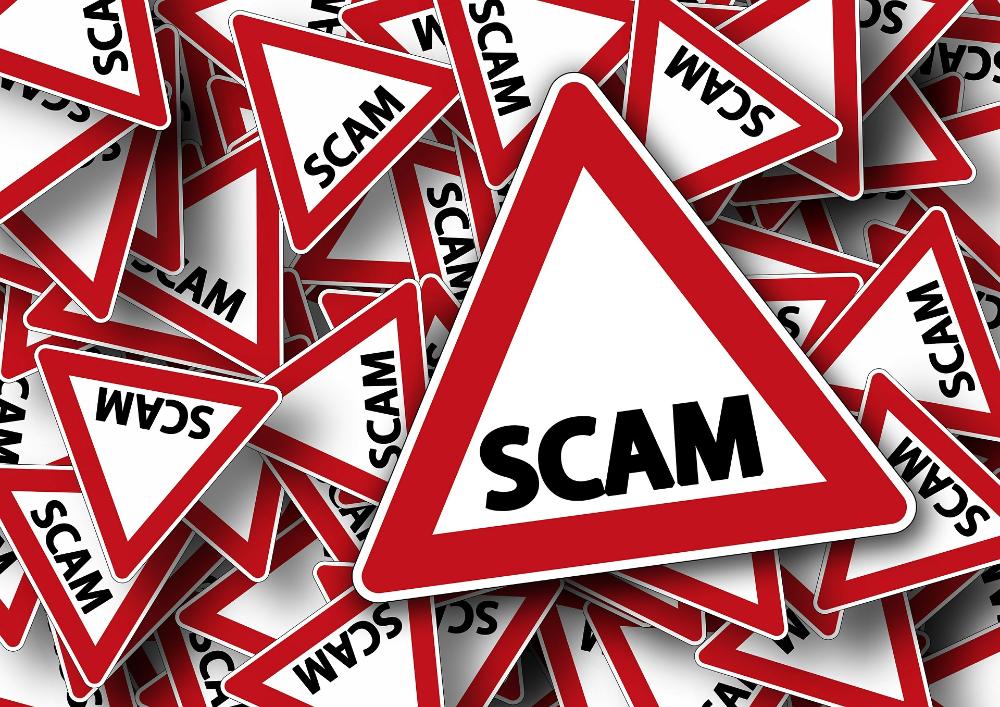
Southeast Asia is a fantastic part of the world to travel through. It offers pristine white-sand beaches, lush jungle-clad mountains, secluded fairytale waterfalls, atmospheric ancient ruins, extravagant temples and religious monuments, a rich cultural heritage, thousands of smiling faces, mouth-watering cuisine and so much more.
Nevertheless, there are many pitfalls in this region that await the unwary first-time traveller. We're talking here specifically about travel scams. Knowing how to avoid scams is one crucial aspect of overall travel safety, a broad topic that we cover extensively in our comprehensive guide to travel safety.
Scams operate in all of the Southeast Asian countries but the incidence is particularly high in Thailand, Cambodia and Vietnam. Cambodia has even been nicknamed Scambodia because of its particularly bad reputation for scamming foreign tourists.
There are some useful general rules that will help you to avoid being scammed, like never blindly trusting friendly strangers, being well-informed about the country overall and never allowing a stranger to lead you to a place where he or she would have the upper hand over you.
However, the best way to avoid becoming a victim of a scam is by being forewarned of the scam and having foreknowledge of the details of the scam. That way, you will know immediately when a scam operation is in progress and you can bail out before it's too late.
That's why we've written this guide; to help prepare people for the inevitable encounters with the con-artists, tricksters, swindlers and scammers of this region.
Although this is not an exhaustive list, it is representative of the most common types of scam found in the region and will greatly prepare you for your trip.
Knowledge is power so without further ado, let's get right into the 20 most common types of scams that you're likely to encounter while travelling in Southeast Asia.
#1 - Taxi Scams
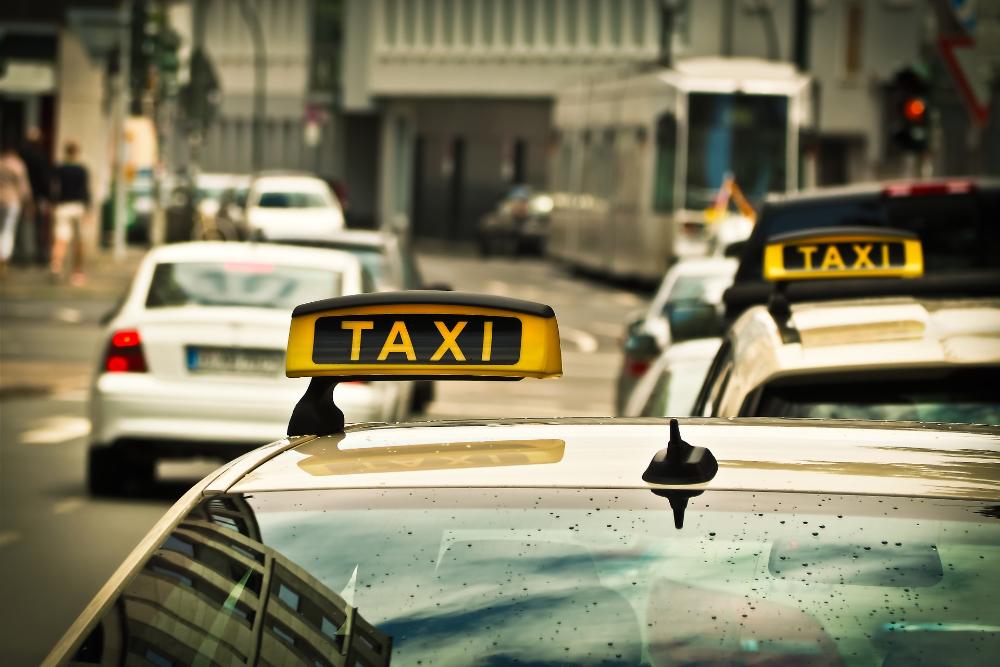
Often when you first arrive at the airport, it’s tempting to take the first taxi waiting outside, because you usually just want to get to your destination as quickly as possible. Be warned however, that taxi drivers in many Southeast Asian countries are notorious for swindling tourists.
Taxi Scam (a) – Refusal to use the meter
The first scam to watch out for is when the driver refuses to use the meter. This is in fact common practice in many countries and you'll often have a harder time finding a driver who actually agrees to use the meter. By refusing to use the meter, the driver can charge an exorbitant rate for the journey and you won’t even realize by how much you’ve been overcharged.
How to avoid it?
Insist on taking a taxi that uses the meter. If every taxi available refuses to use the meter, try to find out from somebody what the correct fare should be for your journey. This will give you an idea of what price to ask for. After that, go ahead and bargain with every available taxi driver for the lowest fare possible before committing to a final decision.
Taxi Scam (b) – The rigged meter
If you manage to find a taxi where the driver is willing to use the meter, your problems might not be over. Sometimes, taxi meters can be rigged to run faster than usual in order to clock up a bigger fare for the same distance. Other meters can suddenly leap up to a much higher number as if by magic.
How to avoid it?
Keep an eye on the meter and if it’s behaving strangely or seems to be running a little too fast, you should probably bail from the taxi as soon as possible to avoid a dispute later. However, if you’re not sure how fast the meter should be running, then you could still become a victim of this scam unknowingly.
Taxi Scam (c) - Circuitous routes
Even if the meter is working normally, there’s yet another scam you could be subjected to. The driver might decide to take a very convoluted and lengthy route to your destination, in order to clock up a higher fare.
How to avoid it?
This one is difficult to avoid when you’re new to an area because you don’t yet know the roads. It’s best to keep an offline map on your smartphone to hand while you’re in the vehicle so you can see which direction you’re headed. If the driver seems to be deliberately steering way off course, then maybe it’s time to bail from the taxi or attempt to steer him back on course.
Lastly, be warned that some taxi drivers might also try to force you to pay the toll for crossing a toll bridge or using a private toll road. Don't ever pay it!
How to avoid taxi scams in general?
Avoid taxis! Convenience kills folks. Usually airports are connected to surrounding areas by buses and trains so it’s better to use these forms of transport instead since they're less expensive and less prone to scams.
We have virtually never needed to use a taxi in Asia, except for one time when we had an emergency and needed to catch an early morning flight in Calcutta, India.
If you are insistent on using taxis, try to never stow any luggage in the trunk. In the event of a dispute between you and the driver or if you just want to bail from the taxi in a hurry, you will not be able to easily flee the scene if your bags are locked away in the trunk.
#2- Tuk-Tuk (Three-wheeler) Scams
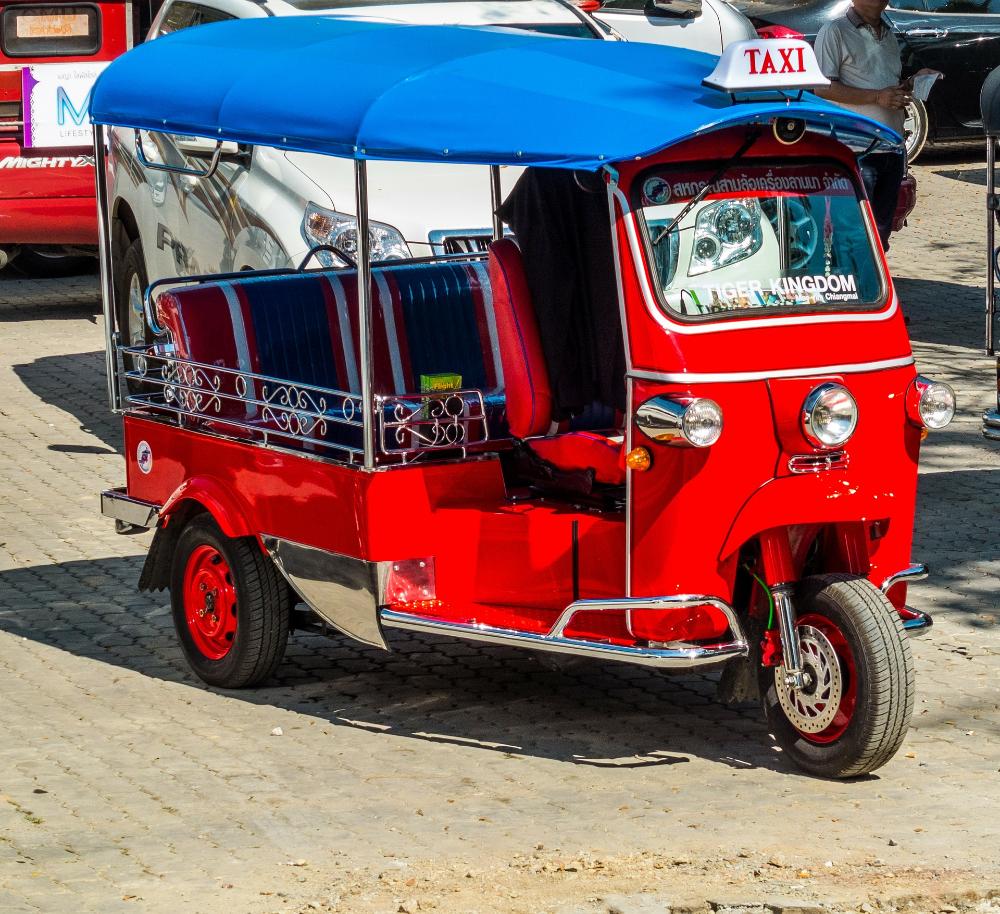
If you've never heard of a tuk-tuk before, they're basically a three-wheeled taxi, usually fitted with a water-cooled 2-stroke engine.
Known as tuk-tuks in Thailand, auto-rickshaws in India and Bajajs in Indonesia, there are many models and types of tuk-tuks, but the basic concept is the same; a taxi on three wheels.
Tuk-tuks are mainly used for short journeys by locals and tourists alike although the latter usually end up getting charged more. Tuk-tuk drivers in Thailand and Cambodia are particularly well known for scamming green tourists. Let's take a look at a few of their tricks.
Tuk-Tuk Scam (a) – The TiT/Tailor Shop scamin Bangkok
If a tuk-tuk driver ever offers you a free ride or a surprisingly low fare for where he’s offering to take you, then you’re probably being invited to become a victim of this common scam.
In Southeast Asia, most people meet with this scam in Bangkok, Thailand. The way the scam begins is when a tuk-tuk driver lurking near Khao San Road (Bangkok's main tourist drag) offers to take you to several temples or attractions in the city for a very small fee of around 20 baht ($0.60).
He may lie to you that today is Buddha day and that the fare is only 20 baht because his petrol costs are subsidized by the government today. He might also tell you that the main attractions in the city such as the Grand Palace are closed and he'll take you on an alternative tour instead. This is all of course a ploy to get you to jump into the tuk-tuk so that he can take you to where he wants.
After the visiting the first temple on his list, he might suggest that you visit the TiT (tourist information of Thailand) office or he may suggest that you check out a tailor shop that just so happens to be en route. These outfits are of course the ones that are subsidizing his petrol costs and he gets a nice commission if you book one of the highly overpriced package tours at the TIT or buy a suit at the tailor shop.
Of course, you’re under no obligation to book a trip or buy a suit, but you end up in an awkward, high pressure sales situation and you’re forced to excuse yourself.
The tuk-tuk driver will often abandon you after one or two commission stops if he sees that you haven’t bought anything or if you leave him waiting for too long at one of the temples. He'll then likely go in search of potentially more lucrative tourists, thus leaving you without a ride back to your hotel.
How to avoid it?
Just don’t take a ride from any tuk-tuks that are offering absurdly low prices or free rides. There’s bound to be a catch.
Tuk-Tuk Scam (b) – Hotel scam
Many tuk-tuk drivers work for hotels on a commission basis and they’ll often try to direct you to a hotel that will pay them a commission, usually by dismissing the hotel you’re trying to find.
If you protest, they’ll make false claims that the hotel you’re looking for has gone out of business or that it’s a very bad hotel that you must avoid. Even if you have a booking, he might tell you that it was an erroneous listing and there is no such hotel.
If you believe the driver's lies, you'll often end up at a more expensive hotel (because it has to also pay his commission) than the one you had originally planned to stay at. You might also have to pay a higher fare to the tuk-tuk driver if the hotel he chooses for you is farther away than the one you had originally chosen.
How to avoid it?
Take everything that tuk-tuk drivers say with a pinch of salt. Tell the driver firmly that you want to be dropped to the hotel or guesthouse that you had in mind, regardless of the claims they're making about the place.
Hotels do close down however and if you got the hotel name from an outdated guidebook, the tuk-tuk driver may actually be telling the truth so just bear that in mind.We once went to a guesthouse in a town in Southern Laos that no longer existed, because we were carrying a very old Lonely Planet guide!
Tuk-Tuk Scam (c) - The fare change scam
Sometimes tuk-tuk drivers will change their mind about the fare for the journey, even if you have both agreed on a price beforehand. This is not very common, but it does happen, particularly in Cambodia.
It's most likely to happen when you don't have the required change to pay the driver the exact amount. You hand over a large note expecting him to hand you back the change; he sees it, gets excited and greedy and either hands you back less change than you're due or he just drives off with the money.
How to avoid it?
Always try to carry plenty of change before jumping into a Tuk-Tuk so that the driver can't shortchange you at the end of the ride. However, it's not always possible to have exact change, so what you can do is just insist that the driver hands you the correct change before you hand him over the money. Always re-confirm the originally agreed fare with the driver before handing over any money.
#3 - Bus scams
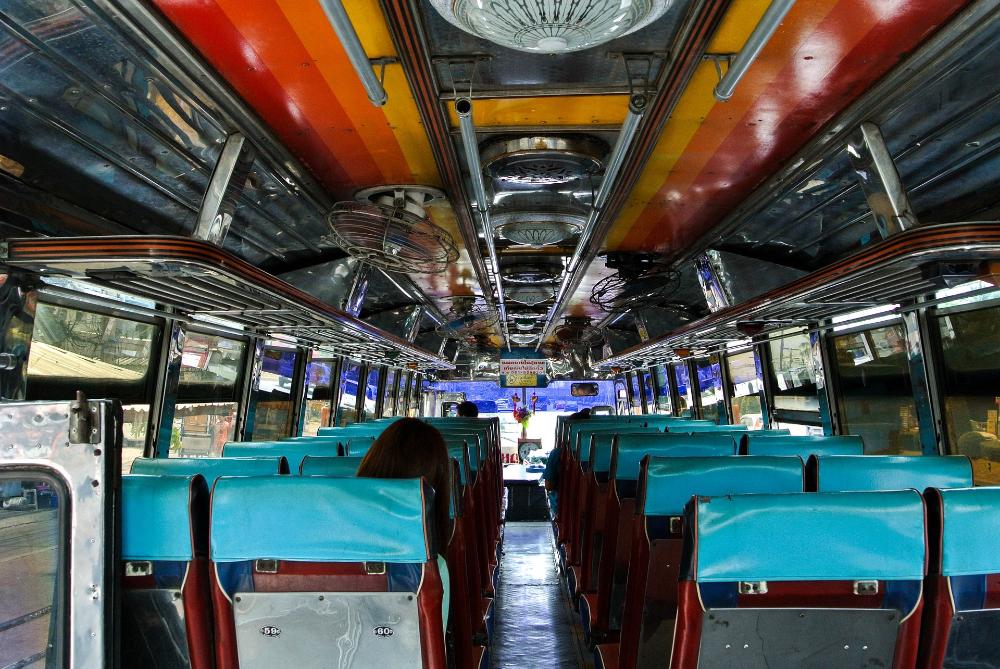
Scam (a) – The border bus scam
Some travel agents sell incredibly cheap tickets for buses headed to the borders, in order to undercut their competition. At some point during the journey, the bus driver will deliberately stall or delay the journey until the border checkpoint is closed. The passengers will then all be dumped at a nearby guesthouse or hotel that the bus driver conveniently just happens to know about, which he’ll surely be receiving a sizeable commission from, to compensate for those exceptionally low bus fares.
Scam (b) – VIP bus scam
Sometimes, travellers will pay extra for a VIP bus, only to be later told that the VIP bus is broken and that they’ll have to take the regular bus instead. This might occur when insufficient tickets have been sold for the VIP bus, which has higher running costs. The unlucky travellers end up getting no refund for the fare difference either.
Scam (c)– Valuables theft bus scam
This bus scam is known to occur in Thailand with some overnight sleeper buses, which are selling extremely cheap tickets. During the night, while the passengers are asleep, the bus makes a stop and most of the valuables are stolen from the bags in the luggage compartment.
How to avoid bus scams?
Be very careful about buying bus tickets with a price that sounds too good to be true. If they’re that cheap, there’s probably a hidden cost somewhere else. Be wary of booking privately owned VIP buses in advance; it's better to buy the ticket when the bus is physically there in front of you, loading up with passengers and luggage.
Generally though, your best defense against all these bus scams is to avoid tourist-specific buses as much as possible. Try to take the government-owned buses or the private buses that are used by locals and tourists alike.
#4 - Gas Station Scams
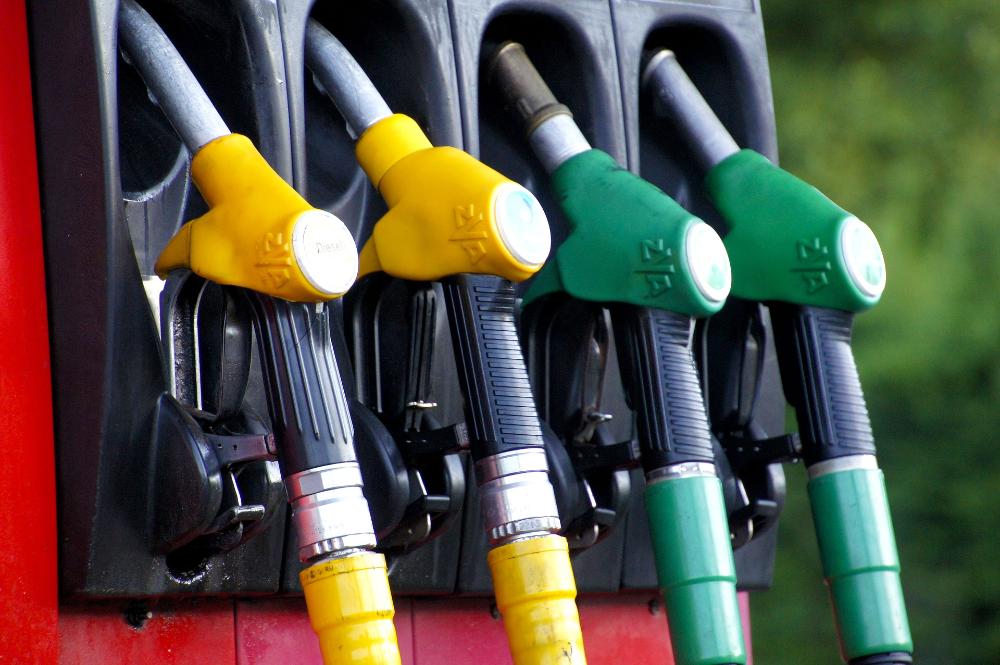
The most common gas station scam in Southeast Asia usually involves the attendant deceiving you into thinking they’ve filled up your tank with the amount that you requested, but in reality they’ve left you well short of the mark. The attendant then charges you the full amount for the quantity of petrol that you requested.
This scam is easy to fall prey to if you’re not paying attention. After a previous customer has filled up and driven away, the attendant may deliberately not reset the meter to zero.
Let’s say the previous customer took 2 litres of petrol and you come along and request 3 litres of petrol. The attendant then fills your tank with only 1 litre of petrol, while the meter reads that he has delivered the full 3 litres that you requested. If you hadn’t noticed that the meter had not been reset beforehand, you could easily fall prey to this scam.
How to avoid it?
We first encountered this scam in Vietnam and did not fall for it because we were paying attention and noticed that the attendant had not reset the meter back to zero. We forced the dishonest man to back down from overcharging us, because we knew he was in the wrong. The lesson? Stay alert to what’s going when refilling your gas tank.
#5 - Motorbike Scams
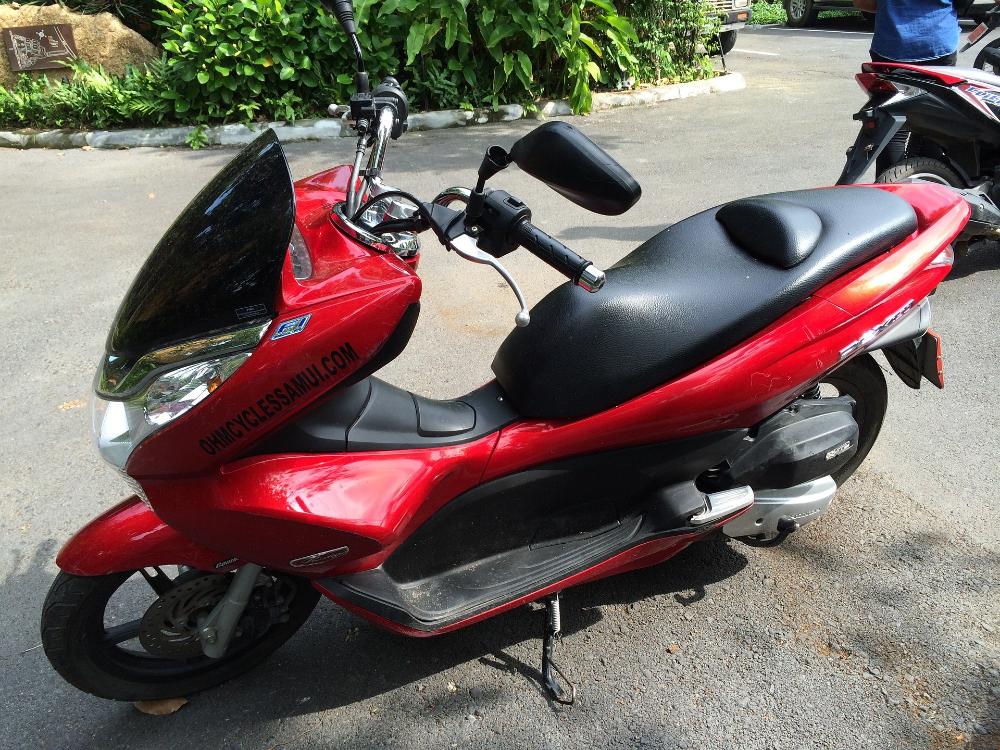
It’s a great idea to rent or buy a motorbike in Southeast Asia, especially if you want to explore the attractions in the surrounding countryside, prefer to avoid package tours or want to be able to get around independently.
However, be warned that there are several scams in this business that you should be aware of.
Motorbike Scam (a) - The conspiracy
This scam involves an agent conspiring with a motorbike rental company or guesthouse that rents out bikes to tourists.
If you rent out a motorcycle, the agent will follow you discreetly after you leave the premises with the rented bike. If you make a stop and leave the bike unattended for a few minutes, the agent, possessing duplicate keys to the bike lock and to the ignition, will quickly approach the bike, start the engine and then drive off with it.
When you return to where the bike was parked, you experience the horror of seeing that the bike is no longer there. You reluctantly return to the rental company to deliver the bad news and they force you to pay the full amount for the replacement of the bike. You have no option but to pay because they’re holding on to your passport as a security deposit.
How to avoid it?
This is a difficult scam to avoid because you can’t necessarily prove that there was a conspiracy involved. Somebody may genuinely have stolen the bike. If the bike rental company has your passport, you'll have a really hard time getting it back without handing over the money.
To protect against this scam, there are a few things you can do.
Firstly, try to hand over a photocopy of your passport instead of the document itself if they ask for it.
If you have to sign a contractual agreement, read the terms and conditions of the agreement carefully and refrain from signing if you are going to be held responsible in the event of theft.
Lastly, always make sure that nobody is following you after you leave the premises with the bike for the first time.
Don't worry too much about this scam. It's rare and it's never happened to us but then again, you never know. Always take due precautions.
Motorbike Scam (b) - False Scratches & Dents
Another way you might be scammed is if you scratch, dent or otherwise damage a rented bike in any way. You could easily be overcharged for the damage.
You may also be accused of making old scratches or dents that were already there prior to renting out the bike. An agent may also conspire with the bike owner to deliberately scratch or damage the bike while you leave it unattended. In any of of these cases, you could be charged exorbitantly for the damage.
How to avoid it?
Avoid renting out very new looking motorbikes with pristine paint jobs. New bikes will make any scratches or dents that you make very obvious.
If you want to protect against false accusations of scratches or dents that you didn't make, photograph the body of the bike before taking it for the first spin. That way you have some evidence to counter any false claims...
In addition, try not hand over your passport and instead see if they'll accept a photocopy, an expired passport or some other less valuable security deposit. Be careful again here what you agree to if you're asked to sign any forms.
Scam (c) - The fake motorcycle agent
Many travellers buy a motorcyle to travel the length of Vietnam, as it's one of the most exciting ways to tour the country. However, you have to be very careful about buying motorcyles in Vietnam as there do exist spurious agents who claim to be working for a well established and reputable motorcyle dealer.
Most of these fake agents will be lurking around the tourist hotspots in Vietnam's two major cities; Ho Chi Minh and Hanoi. If you fall for the scam, they'll end up selling you a very old and unreliable motorcyle for an undeservedly high price.
The bike will likely give you a huge amount of trouble and you'll probably spend a fortune on repairs if you drive any appreciable distance with the bike.
Some of these fake agents might also promise you a refund for all of your repair costs after you arrive at the other end of the country in Hanoi or Ho Chi Minh city.
Of course, when you do finally arrive and present the receipts for all your repairs to the owner of the company that the agent supposedly is working for, they'll be baffled and will inform you that they have never even heard of the guy. You won't get the promised refund.
We have written an in-depth ultimate guide to motorbiking the entire length of Vietnam, if you want to learn more about this.
How to avoid it?
If you're buying a motorcyle from an individual you met on the street, It helps to have some knowledge of motorcyles.
Know what bike models are older and what bikes are newer and how much different bike models should cost. Know how to inspect a motorbike and how to read the early warning signs for potential future problems when you take it for a test drive.
Also, don't immediately trust anybody claiming to be working for a particular company. Verify all such claims.
It's generally safest to go to a small outfit or mechanic shop on a street that's selling bikes. These places have an established business on the street and they generally do a great job of servicing motorbikes and rendering them roadworthy before they sell them on to foreigners.
Avoiding motorbike scams in general:
Try to leave an alternative security deposit, an expired passport or a photocopy of your passport, rather than your passport itself. Possession of your passport is really the most powerful weapon a scam company can use against you. Avoid signing forms in which you agree to being liable for any damages or theft caused to the bike.
#6 - The Infamous Jet Ski Scam In Thailand
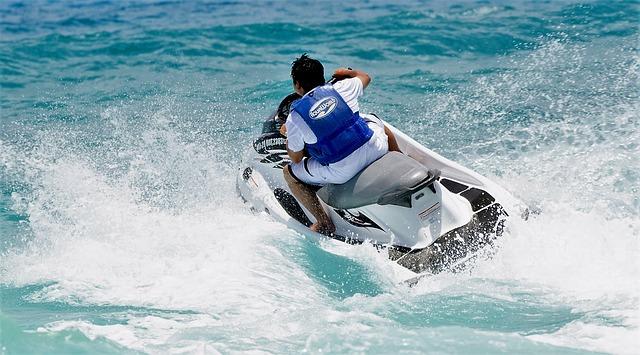
This is basically another version of the motorcycle scam where the owner falsely accuses you of damaging the bike, by pointing to pre-existing damage that you had nothing to do with.
The difference this time is that the scam involves jet skis instead of motorcycles and it’s particularly rampant in Thailand, in places like Pattaya Beach, Phuket and Jomtien.
This is also a very well organized scam and there can be up to 100 or more people in on it, including the Thai mafia members behind it all, the jet ski operators, nearby beach chair renters and ‘friendly bystanders’ that are often of Indian or Russian nationality.
How the scam works is something like this:
An innocent tourist or group of tourists rent jet skis from a seemingly friendly operator at a beach somewhere in Thailand. They’ll usually pay about 500 baht for half an hour on the water and have to leave their passports as a security deposit.
After enjoying their half-hour or so riding the jet skis on the water, the tourists return to the beach to give back the jet skis to the company. The operator then performs an inspection of the jet skis and lo and behold, discovers a crack, gash, dent or some other kind of damage on the bodywork of one of the vehicles.
He first feigns astonishment and horror and then angrily accuses the tourist in question of causing the damage. He then demands compensation for the damages, the exact amount varying according to the perceived level of wealth or naivety of the tourists involved.
If the tourists try to deny the charges the operator becomes increasingly aggressive and starts threatening the tourists with violence. Other thugs often turn up at this point and put increasing pressure on the tourists to pay up. A ‘friendly bystander’ (usually a foreigner) may also appear at this point, who appears to partially side with the tourists by helping them to negotiate a lower price, but is also in the scam.
Many tourists have been forced to hand over as much as 50,000 Thai baht ($1,425) and have been escorted to the nearest ATM machine to withdraw the money. It’s definitely possible to negotiate a lower amount than this, but many tourists are too scared to even try ‘bargaining’.
Some tourists will summon the tourist police in their defense, but that usually turns out to be futile since the police are usually in on the scam too and will take a cut of the profits.
The police officer will normally turn up and will often first play the ‘good guy', helping the tourist to negotiate a slightly lower amount but never fully siding with the tourist. If the tourist still refuses to comply, the police will then usually turn nasty and threaten the tourist with arrest and a jail sentence.
Tourists who know about the scam have tried to avoid it by photographing the body of the jet ski beforehand, but the operators seem to be one step ahead and will often conceal pre-existing damage each morning before the tourists arrive.
One way this is achieved is by having the jet skis floating and partially submerged in the water when the tourists arrive, thus concealing any gashes or damage to the lower regions of the body. When the jet skis are beached, the damage then becomes apparent.
Another way pre-existing damage is concealed is by covering up small cracks or scratches with water-soluble spray-paint and by filling in large gashes with filler material that is held in place by water-soluble glue.
Broken side and front bumpers may also be temporarily held in place with the same water-soluble glue.
When the tourist is riding the jet ski, the water-soluble spray-paint and glue simply dissolve to reveal the pre-existing damage again.
How to avoid it?
It’s probably best to avoid renting jet skis altogether in the places where the scam is known to operate. As we’ve mentioned, photographing the vehicle beforehand will not always help you to avoid becoming a victim of the scam.
It’s really pathetic that this scam operates and that such lowlifes exist in Thailand but it’s their country and the power is in their hands, especially with the tourist police in on the act as well. Best to walk away from this one.
#7 - The 'Poker 21' Card Game Scam
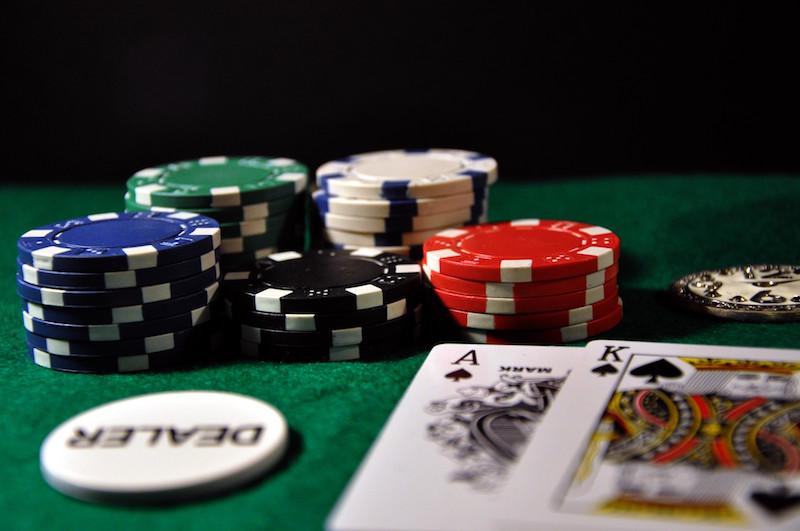
This card game scam, utilizing a variation of Blackjack called ‘Poker 21’ or ‘Poker Jack’, seemingly originated in Saigon (Ho Chi Minh city) in Vietnam, but there are now also reports of it occurring in the Cambodian cities of Phnom Penh and Siem Reap. It also occurs in Thailand and possibly in Malaysia too.
In Saigon at least, the scam is operated by a gang of 50+ Filipinos who variously claim to be from Malaysia, Vietnam or Brunei, depending on the individual’s role in the whole charade. There are also a number of Vietnamese accomplices in on the whole act.
The most common version of the scam begins when a friendly middle-aged stranger approaches a hapless solo-traveller on the street, in a park or perhaps outside a shopping centre, and strikes up a conversation. Each city where the scam operates has its own hotspots where the scammers lurk.
The stranger can be a man or a woman and speaks unusually good English for an Asian person. For our purposes we will call this well-spoken person Mr. A.
One of the first questions Mr. A usually asks is ‘where are you from?’ and the tourist’s answer is invariably followed by astonishment; Mr. A just so happens to have a daughter/sister/niece that is getting ready to move abroad to begin a new job at a hospital in the tourist's home town or city.
More friendly exchanges and conversation follow on from this and eventually Mr. A, who is now beginning to appear trustworthy, invites the tourist for lunch at the family home, often proclaiming how it would be a great opportunity to exchange knowledge of each others cultures and also for the tourist to calm the family’s fears about the daughter/sister/niece’s move to the tourist’s home country.
A taxi or tuk-tuk is then hailed and the tourist is taken to the family home, which is normally located in a part of the city that the tourist is completely unfamiliar with. Upon arriving at the home, the sister is not there and the tourist is told that she is at the hospital with her mother/grandmother, who is very ill.
After eating lunch, the tourist is introduced to a nephew/uncle/brother who we will call Mr. X . This Mr. X mentions that he’s currently on leave from his job as a high stakes card-dealer in some hotel, cruise ship or casino and the conversation is then inevitably steered towards gambling and card games.
Mr. X then explains to the tourist that he has a special system for cheating in a card game called ‘Poker Jack’ or ‘Poker 21 (the game is a version of Blackjack).
With this special system, the dealer can communicate to the tourist exactly which cards the opponent currently has and which card will be dealt next, using an array of hand signals that only the tourist will know how to recognize.
The tourist is then invited to a room to learn and practice the newly taught system (no money involved) so that maybe one day soon the tourist can collaborate with the dealer and together they can both fleece some naive gambler out of a great deal of money.
Mr. X and the tourist sit down together at a table and Mr. X shows the tourist the ropes of his system.
It’s at this point when a guest turns up at the house. We’ll call this man Mr. Y. Mr. X then explains that this is one of his regular clients and that Mr. Y is a very rich, but dim-witted oilman from Brunei (another variation is the banker from Singapore), who inherited all of his money from his wealthy father.
Mr. X also explains that Mr. Y is very greedy, having failed to tip him properly in the past and that he’d be the perfect victim to cheat out of his money with the system he just demonstrated.
Mr. Y then sits down at the table with a briefcase full of cash and is eager to begin playing the card game. He buys say $500 worth of chips from Mr. X, now acting as the dealer. Mr. X then offers to lend say $200 to the tourist so that he can also purchase chips and begin playing. It is at this point that the tourist is trapped. Let us explain how.
During the first few rounds, the tourist keeps winning money from Mr. Y because Mr X is giving him the hand signals so that he can’t lose. This encourages the tourist to keep playing, but there is also another factor that makes it difficult for the tourist to simply quit at this point; the special twist in the rules of this card game.
The twist in the rules of the game is that Mr. Y automatically wins all the chips if the tourist can’t match his bet and since the tourist doesn’t want to lose the $200 he borrowed from Mr. X, he feels compelled to keep playing.
The tourist may also borrow even more money from Mr. X as the game proceeds, to match the increasingly large bets of Mr. Y, at which point it becomes even more difficult to walk away.
At some point in the game, after the tourist has won several rounds, Mr. Y will put down a huge bet of say $20,000 dollars, which the tourist does not have enough money to match. Mr. X then usually offers to cover the debt if the tourist loses the round but Mr. Y wants concrete proof that Mr. X actually has the funds before proceeding.
At this point in the game is normally put on hold to give Mr. X a chance to get the money from his brother or some other unseen loan shark. Mr. X then invariably returns with less than the amount needed and asks the tourist if he can cover the rest.
At this point major alarm bells are probably ringing in most victim’s minds but it can still be very difficult to walk away because the tourist doesn’t want to lose the money he borrowed (which he will have to pay back) and he has also been led to believe that if he just plays through this next round he will win and both he and Mr. X will walk away with thousands of dollars in cash.
If the tourist doesn’t try to bolt for the door at this point, he’ll usually be encouraged to withdraw as much cash as possible from the nearest ATM machine and if there’s a problem withdrawing from the ATM, he will be urged to buy gold or perhaps mobile phones, which Mr. Y will also accept as payment if the tourist loses the next round.
At this point, an agreement may be made to briefly part ways with Mr. Y and meet up again in an hour or so. Mr X. will often suggest here that both the tourist and Mr. Y leave some collateral as ‘assurance that each will return.’
Some tourists have handed over their expensive cameras/personal valuables here, while Mr. Y normally hands over his stash of cash, all to be locked away in a cupboard. If it reaches this point the tourist has really dug himself into a deep hole.
If the tourist does come up with the cash and partake in the next round, Mr. X will now ensure that the tourist loses this round, along with a very substantial amount of his own money.
Some travellers have escaped mid-way through the scam, bolting out the door of the house and sprinting down dozens of small alleyways until they eventually emerged at a main road where they were able to hail a cab back to the hotel.
Some have not gotten away so lightly and have been taken for $20,000 or more.
Others have been drugged and robbed when it was not possible to entice them into partaking in the game of cards.
How to avoid it?
Be very suspicious of very well-spoken people in Southeast Asia that seem abnormally warm and friendly. Decline invitations from such people to parts of the city that you’re unfamiliar with and where they’re in control.
Make sure also that you never give out any sensitive information like the name of your hotel, your social media profiles or your mobile phone numbers to strangers in Southeast Asia.
If you do get roped into a scam like this but manage to escape unscathed, it will at least mean that they can’t track you down or keep pestering you afterwards with phone calls or unsolicited messages.
After having read through the details of the scam here, you should be well equipped to realize that the scam is unfolding before you get fully roped into it. The key is to cop it before it’s too late.
#8 - Gem Scams

There are probably more fake gems than real ones being sold in marketplaces throughout Southeast Asia.
Many commonly sold gemstones like rubies, sapphires, emeralds, garnets, peridots, turquoise etc. all have their fake counterparts and even coloured glass can perfectly imitate many different gemstones.
Without testing equipment such as neodymium magnets and refractometers, it is impossible to determine the true identity of these gemstones to determine their authenticity.
For this reason it may be best to altogether refrain from purchasing gemstones in Southeast Asia unless you’re a real expert and think you can beat the gem cheats.
The famous gem scam
There is one very well-known gem scam in both India and Southeast Asia which seems to come in countless different forms but the basic idea is this:
You get befriended by gem sellers who encourage you to buy their gems in their shop for a low wholesale price and then sell them back home for a high retail price, thus guaranteeing you a healthy profit.
They explain that they cannot sell the gems internationally themselves because of the high taxes for exporting them. Often you're informed that there is a special tax-free arrangement for you or a special sale on today. What's more, you're reminded, you can easily bring the gems onto the airplane using your duty-free allowance!
After falling victim to the gem seller’s charms, you end up purchasing an assortment of gemstones from the seller and after returning home, you discover to your dismay and disappointment, that the gemstones have turned out to be nothing but glass or counterfeit gems and are practically worthless.
In another version of the scam, the gems are shipped directly to your home address so that you have no way to verify their authenticity before leaving the country and thus no way to claim a refund.
Although this is a well-known and infamous scam, it survives because of its efficacy and tourists are still fooled by it all the time.
How to avoid gem scams?
To avoid all gem scams, simply don’t meddle with gems unless you really know what you’re doing. If you do know what you're doing, then you'll know that you can perform some tests for fakes with a strong neodymium magnet.
Another way you can reduce the risk of being scammed when purchasing gems is by visiting a gem mine.
In Rattanakiri Province in Cambodia, we visited a zircon mining site, in the middle of a large rubber plantation. The raw zircon stones being pulled straight out of the Earth by the miners were undoubtedly the genuine article and you could also obtain them at a lower price, seen as they were coming straight from the source.
We have also written a travel guide for Banlung, the provincial capital of Rattanakiri Province, Cambodia, where you can learn much more about how the gemstones are mined by slave workers.
#9 - Overcharging Scams
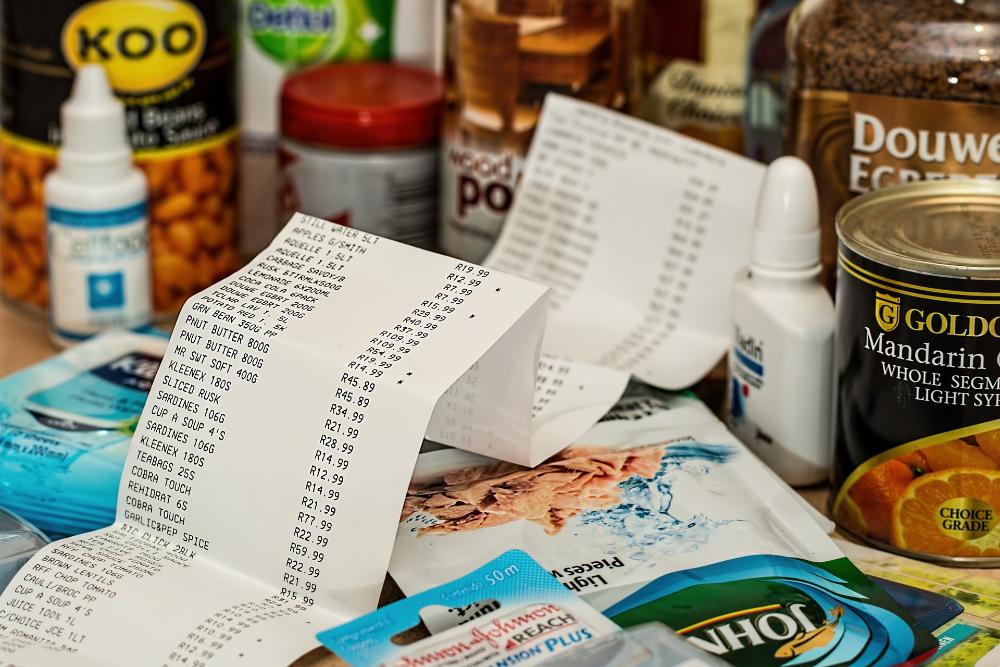
Overcharging is something you will encounter quite often as you travel through Southeast Asia. It's less common away from tourist hotspots but in places that see plenty of tourists, overcharging can become a habitual thing for the local people.
It happens in all sorts of scenarios; admission fees, restaurants, buses, grocery stores, marketplaces and so on.
In many tourist hubs, it often seems that if there is any opportunity at all to overcharge foreigners, the locals will take advantage of it. For example, if there is no price displayed on a restaurant menu and you forget to ask the price before ordering, this can often be a recipe for disaster.
Ticket issuers on local buses will often try to overcharge foreign tourists while unabashedly charging the local person in the seat beside far less for the same journey, pocketing the extra money for themselves.
How to avoid getting overcharged?
If there is no price written down, then always agree on a price beforehand. Never eat food, order drinks or use a service without first enquiring about the price. This will help to avoid a shock later and an awkward dispute. This is the golden rule that must always be followed in Southeast Asia.
You can avoid getting overcharged on local buses by knowing the distance (in km) to your next destination and the approximate price per kilometre. In Sri Lanka for example, for longer journeys the normal rate on local buses is about 1.5 Sri Lankan Rupees (LKR) per kilometre.
Otherwise, you can ask a local person on the bus how much the ticket should cost for the journey to your particular destination. Having all that information to hand, you'll have the confidence to dispute any overpriced fares that you may be issued. Raising your objections is surprisingly effective; we have been refunded several times by forcing the ticker issuer to pay us back the stolen money.
When buying groceries and getting overcharged for packaged items you can always point to the price printed on the item and sometimes the vendor will agree to the true price. If not then you can always return the items and walk away.
In general, to avoid overcharging just know the correct price and protest, protest, protest. 'Bargain' the price back down to the correct price. Tourists get overcharged because they either accept it or just aren't aware of the normal local prices for things. Sometimes though, all you can do is walk away and try somewhere else.
#10 - Border Crossing Scams
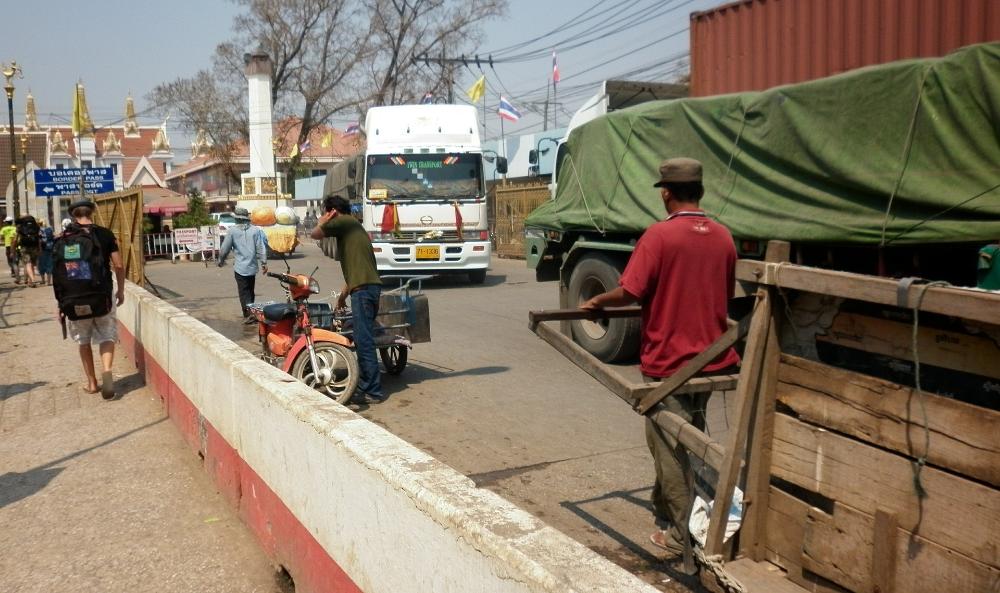
Many land border crossing points in Southeast Asia, such as the ones between Cambodia, Thailand, Laos and Vietnam are well known for scamming travellers. Perhaps the most scam-ridden border checkpoint is the Thailand-Cambodia crossing at Aranyaprathet/Poipet.
Scam (a) – Unofficial fees
This scam is found at several border checkpoints in Southeast Asia and involves unofficial processing fees, stamping fees and mandatory donation fees being levied on travellers by the border officials.
These unofficial fees can add an extra 3-5$ onto the official fee, which is actually only the cost of the visa. The border officials pocket all of this extra money. Unofficial stamping fees for exiting a country also exist although these are generally easier to protest than those for entering.
How to avoid these extra fees?
While the stamping fee that is sometimes asked on exit can usually be protested, the unofficial fees for entering are harder to avoid.
Protesting sometimes still works but if you’re at one of the more remote border crossings, you have no higher authority to complain to and they’ll normally refuse to stamp your passport if you don't pay the fee.
If you arrive at the border with a group of other travellers in a minibus for example and they all succumb to the scam, then your odds of avoiding this one are very low. You can protest for as long as you want but the minibus full of other travellers will be waiting impatiently for you and the officials can refuse to stamp your passport all day.
An organized group protest might be the only hope to defeat this scam although unfortunately, many backpackers are afraid to stand up to the authorities.
Scam (b) - Bird flu scam
At the Tay Trang/Sop Hun, Vietnam-Laos border crossing, we encountered this scam, where after obtaining the visa-on-arrival, a man attempts to take your temperature, claiming that you must be tested for bird flu before being allowed to enter the country (Laos). Of course, the test is a totally bogus one and it's just an excuse to steal your money.
How to avoid it?
We simply declined this one because we knew in advance that this was a scam and not a mandatory procedure at all. They don't really seem to be enforcing this one since it's just so ridiculous, rather just hoping that somebody will be foolish enough to fall prey to it.
Scam (c) – Currency exchange scams
Before exiting countries, you might be told the lie that it's impossible to change your leftover currency once you’ve crossed the border and that your last chance to change it is now. We encountered this ourselves at that same Tay Trang-Sop Hun, Vietnam-Laos border crossing where we experienced the bird flu scam.
Many travellers believe this lie about the leftover currency being impossible to change in the new country and end up accepting an appalling exchange rate for fear of ending up on the other side of the border with useless currency that can’t be changed.
How to avoid these scams?
Do your research beforehand. Find out if your currency can be exchanged on the other side of the border.
If it can, you can always wait until you reach the first major town across the border and get a better exchange rate.
If it can't, try to change it at a bank or exchange booth before you travel to the border. In general you should try to avoid changing currency near borders because the rates are usually pretty terrible.
Scam (d) – Visa scams
At some border crossings, you may be approached by people who claim that there is no visa-on-arrival facility at this border crossing and that you must obtain your visa before exiting the country.
They’ll take you to an office where you can get your visa processed, but you’ll be charged a much higher fee than from the official visa-on-arrival office just across the border.
Other people might approach you on the other side and offer their assistance for filling out visa-on-arrival forms. If you take their help, they'll charge you for it.
How to avoid these scams?
Just refuse these offers. You don’t need help filling out forms and you don’t need to obtain your visa prior to exiting a country. The official visa-on-arrival checkpoints are always in the country you’re entering, never in the one you’re exiting from.
#11 - The Go-Go Bar Scam In Bangkok
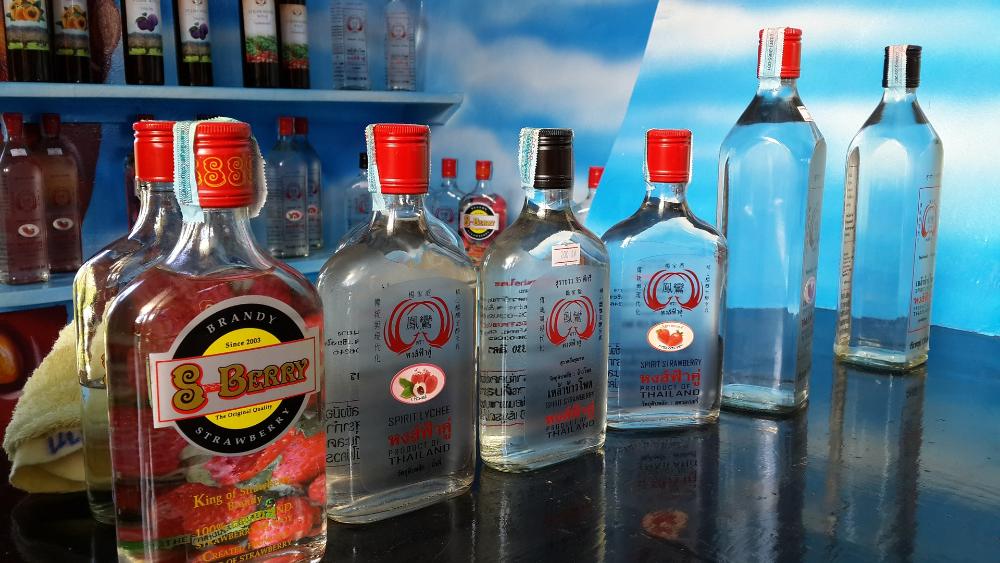
Patpong 1 & 2 streets are considered to be the core area of Bangkok’s red light district and are lined with sex bars full of half-naked Thai girls.
A number of touts prowl these two streets looking for tourists to invite to watch the so-called ‘ping-pong’ shows. To lure tourists in, they usually make a false promise that the shows are free and that you’ll only be asked to pay for the drinks that you buy.
The shows themselves consist of scantily clad Thai girls on a raised stage, performing various lewd tricks with balloons, candles, cigarettes, chopsticks and other props.
The way the scam works is that you enter inside, sit down and have a few drinks and halfway through the show you suddenly get landed with a huge bill, including a bill for the show, which you were told you wouldn’t have to pay for.
The drinks inside the show are heavily overpriced by a factor of three to four times, which is to help compensate for the absence of any cover charge, but apparently if you don't spend enough on drinks you'll get landed with the scam exit fee.
How to avoid this one?
Don’t watch a ping-pong show in the first place. They aren’t even particularly entertaining but if you must satisfy your curiosity, then be prepared for the ensuing dispute. You’ll be shouted at to pay by angry Thai people but just remain firm and only pay for the drinks, as promised.
#12 - Money Exchange Scams
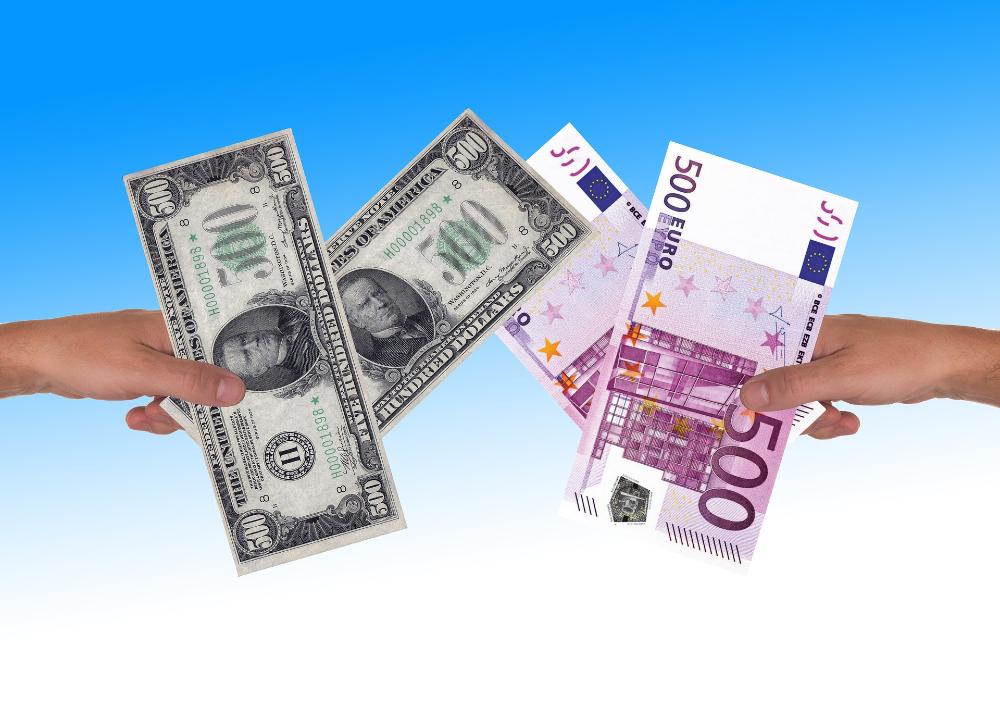
If you’re ever changing money from one currency to another in a Southeast Asian country, beware that you might be subjected to scams that fall under this category.
There are two main types of scam to watch out for.
Scam (a) Shortchanging
You pay for something in a foreign currency like USD and the seller returns your change in the local currency, giving you a bad exchange rate and leaving you short of the correct amount. This kind of scam is particularly prone to happening in Cambodia where they accept US dollars as payment but usually give change in the local currency, the Cambodian Riel (KHR).
Watch out here also for being returned fake or torn notes that will not be accepted elsewhere.
How to avoid it:
Insist on getting the change in the foreign currency or pull up a currency exchange app on your smartphone so you can make sure you're not getting shortchanged. Inspect all notes that you receive to make sure they're not torn and judge their authenticity to the best of your ability.
Scam (b) Terrible exchange rates
You change your foreign currency at a currency exchange booth, bank, border crossing or even with a local shopkeeper who offers to change your foreign currency. You get scammed with a horrible exchange rate and end up losing a lot of money.
How to avoid it:
This one is easy enough to avoid. Always be aware of the correct exchange rate before carrying out any transactions involving a change of currency.
When converting currency at a money exchange or bank, compare a few different options and choose the best possible rate. When you’re quoted the amount that you'll receive, it’s good to already know in advance how much you should receive.
#13 - Drug Scams
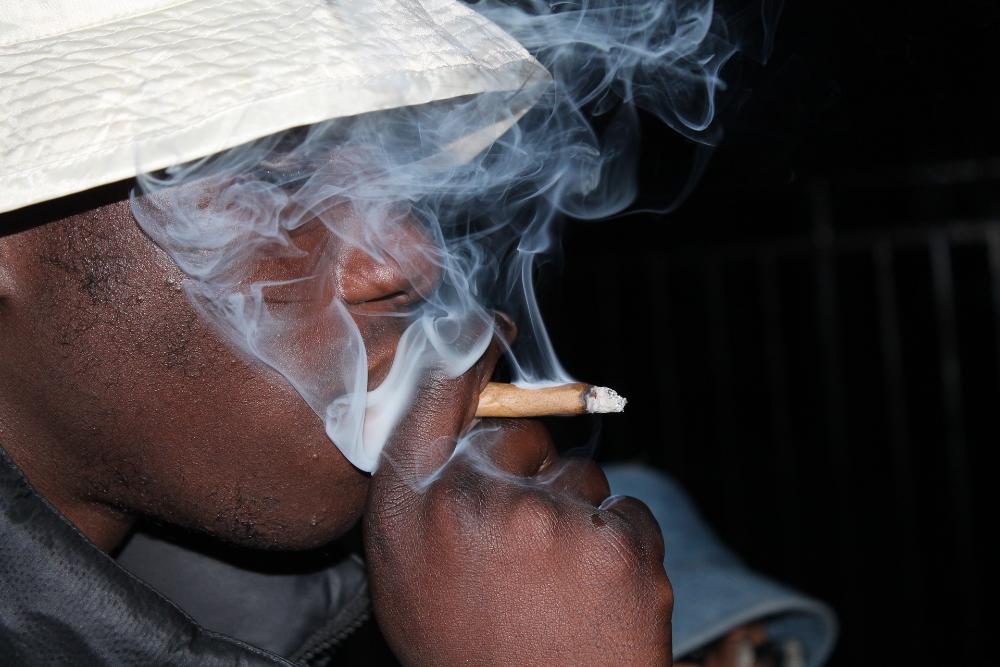
In many tourist hotspots in Southeast Asia, it’s often impossible to walk down the street for five minutes without hearing whispers from drug dealers offering cannabis, magic mushrooms, opium, cocaine or other drugs to tourists.
Often it’s harmless to purchase drugs from these people, but occasionally, there is a scam operating between these drug sellers and the police. How it often works is that the drug dealer first befriends you and finds out the details of where you're staying.
If you then buy drugs from the person, they tip off a nearby police officer. Later a knock comes on the door, the police search your room and you’re forced to pay a hefty fine for being in possession of drugs or risk doing time in prison.
How to avoid them?
Just don’t buy drugs from strangers on the street. Better still to avoid dabbling with drugs altogether in Southeast Asia. It's not worth the risk in Southeast Asia in general and especially not worth the risk in Indonesia, where you could face the death penalty for certain drug offenses.
If you really need to purchase drugs then your safest bet is probably another backpacker that you've become acquainted with and whom you know you can trust.
#14 - The Buy And Return Scam

We have encountered two different versions of this scam but the principle in each is the same.
In Siem Reap, Cambodia, you have the milk scam. A child pleads to tourists on the street not for money, but instead for a bottle of milk. A hapless tourist ends up buying the child a bottle of milk from a shop. The child however is not at all interested in the milk and only returns it back to the shop owner some time later, receiving a certain share of the profit from the shopkeeper no doubt.
In Vietnam, there is a scam that operates on the exact same principle, during the Tam Coc (three caves) row boat journey in Ninh Binh Province. At the start of the journey you'll be assigned to a boat with your own personal rower (often a woman).
During the journey you'll encounter other boats rowed by women that exist only to sell snacks & drinks to tourists. If you don't buy something when prompted, the snack-boat lady will encourage you to buy a drink for your thirsty, hard-working boat rower. Your boat rower of course is not at all in need of a thirst quenching beverage and simply returns the drink back to the seller lady later on. The two ladies then split the profits.
#15 - The fake monk scam

In many of the Buddhism-practicing Southeast Asian countries, fake Buddhist monks abound wherever there are naive tourists to exploit.
These fake monks will approach tourists and ask for money, often pointing to several notes and coins already deposited inside their alms bowl.
These are, in fact, ordinary people who disguise themselves as monks by donning the same attire and shaving their heads. Many tourists are unaware of this and find themselves a few dollars shorter after meeting one of these con-artists.
How to avoid this scam?
Just know the facts. A monk’s alms bowls are not for collecting money, only food and medicine.
Real monks of Theravada Buddhism only collect alms before noon so let it be a warning if you're being asked for donations by a monk in the afternoon or evening time.
Mayahana Buddhist monks (mostly found in Vietnam) don’t go around collecting alms at all. Remember also that real monks will never sell anything.
#16 - Traffic Police Scams
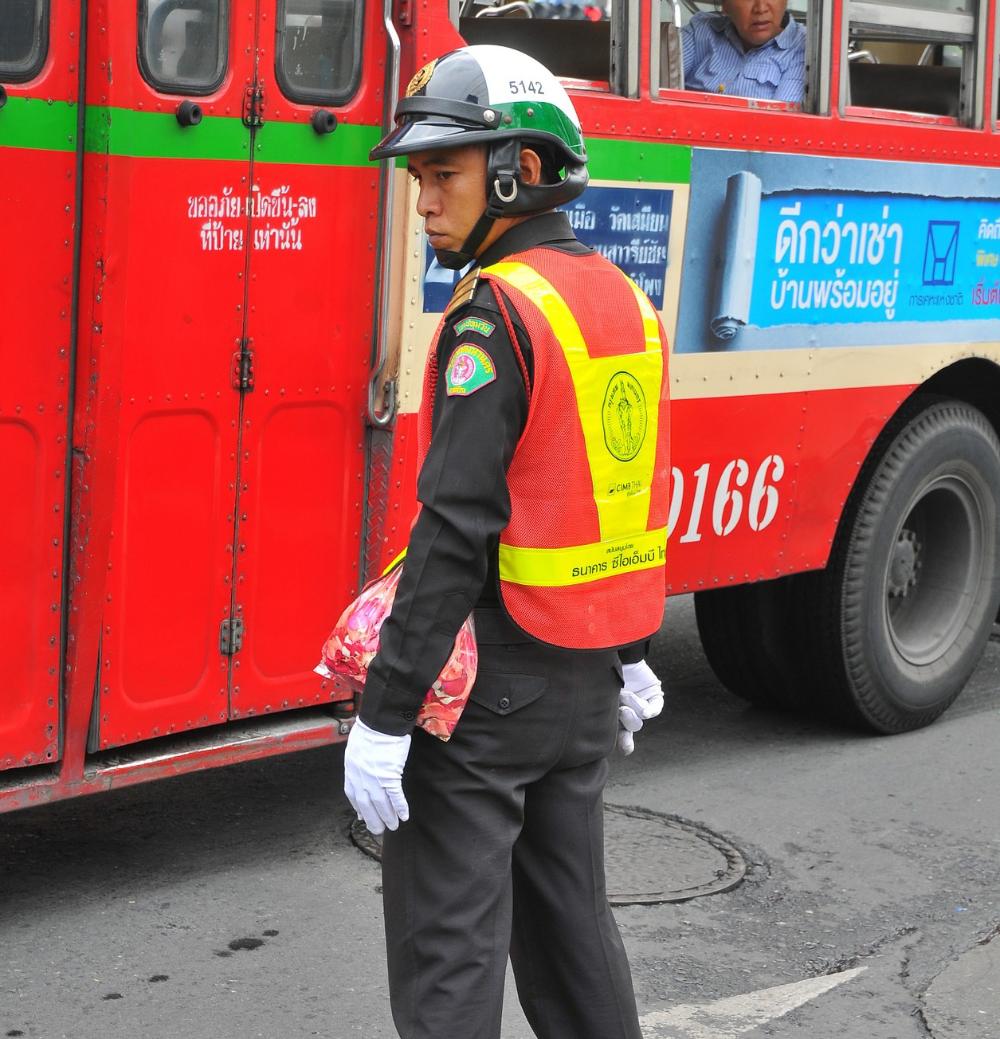
It’s well known that corruption is rife in the police forces of many Southeast Asian countries. The police will often take advantage of any petty wrongdoing or breach of the law by a tourist, no matter how minor, by asking for bribe money.
This reality usually becomes apparent to foreign tourists who hire motorcyles or scooters in Southeast Asia. Sooner or later, they have their first encounter with the traffic police, who pull them over and fabricate any excuse to fine them.
To give an example of this scam in operation, let’s take the example of a police checkpoint we encountered just outside Mui Ne, Vietnam. Here, on the road to the white sand dunes, we encountered a police trap, set up to extract money from tourists on motorcyles.
The police were pulling every tourist over, on the false grounds that the tourists were speeding (they had no speed camera to prove this). They were then trying to extort around $100 from each tourist and if you weren't carrying a driver’s license, they would add that to your list of traffic offenses.
The police were also making threats to confiscate the motorbike if tourists objected to paying the fine but it turned out that the price was very negotiable and we were able to bargain from the initial demand of $100 down to $4.
How to avoid these?
Before renting out a scooter or motorcyle, familiarize yourself with the traffic systems in place around the city. Police will often pull you over for genuine offences like going the wrong direction on one-way streets, not wearing a helmet, carrying too many passengers on the back or breaking red lights. Try to blend in more with the locals by donning similar attire and it'll help you to avoid drawing unwanted attention.
If you do get pulled over and fined for an offense, always remember that the fine is highly negotiable. The officer might lose his patience if you outright refuse to pay anything, so just offer a small amount that won't hurt you like $5 and say that's all you've got. It helps if you've hidden your purse or wallet somewhere inside your bag so that you can pull a $5 note from your pocket, shrug your shoulders and say that's all you've got.
Lastly, try to always carry a driver's license (even a fake one) and better still an international driver's license. In Bali, the police are specifically demanding the international driver's license from all the tourists they pull over. In other countries such as Vietnam, you'll get away with just a normal driver's license most of the time.
#17 - The fortune teller scam

People travelling to Bangkok and in particular the famous Khao San Road, should be aware of the Indian Sikh fortune tellers that lurk around the area during the day time.
These wise looking, turban-wearing men usually provoke you by making a personal remark; maybe a flattering compliment or a profound statement about you that rings strangely true.
This intrigues you so much that you get drawn in and the fortune teller then might tell you some other truth about yourself such as 'you have a special talent that nobody knows about', a truth which in fact is applicable to almost everyone.
This captures your interest enough for you to go inside a small room with the man where he promises to reveal more about you or about your future, if you pay him a large sum of money. It's not uncommon for them to request $100 or more.
Some tourists do inevitably get fooled by this scam, thinking that this man has mysterious powers and knows something about them or their future that they don't. In reality, he's just using the common tricks of the trade to fool people into believing just that.
How to avoid it?
Just decline any interactions with fortune tellers right from the beginning. In the heat of the moment, it's easy to get sucked in and forget that this is just a clever scam that operates to extract money from tourists. It's important to avoid any engagement whatsoever.
#18 - The bird release scam
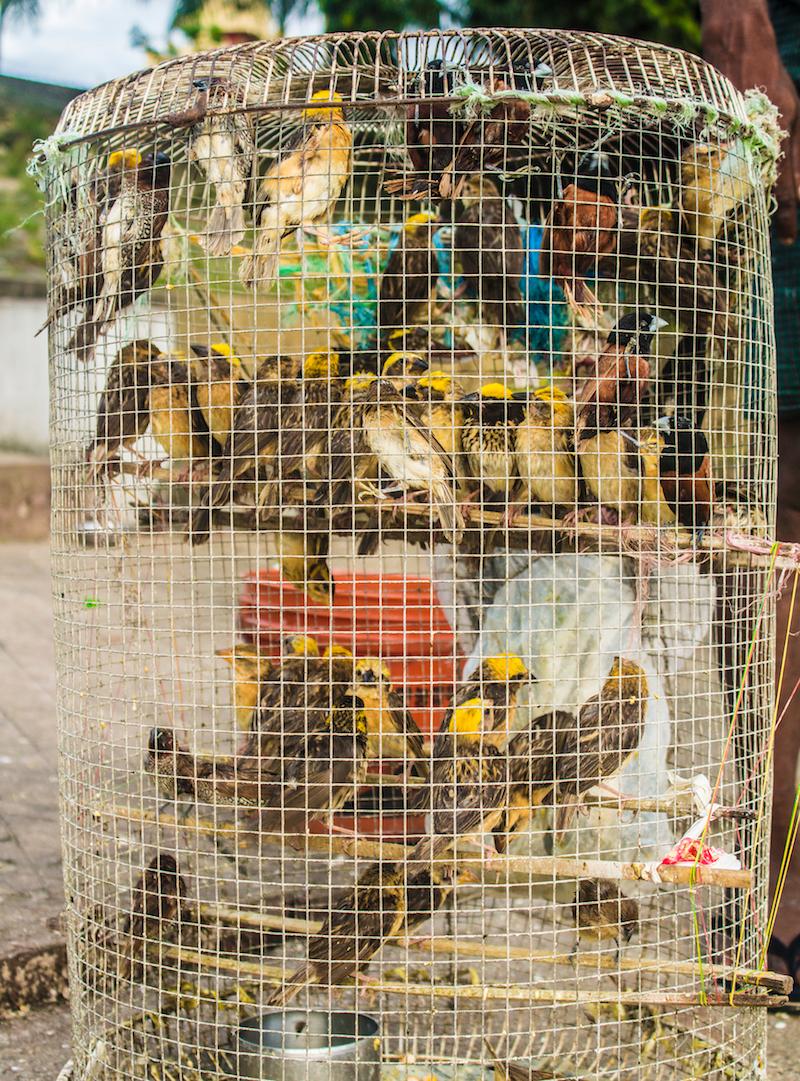
Outside some temples you’ll sometimes see local people with cages full of small colourful birds such as munias, finches and sparrows. If they get your attention, they’ll make a proposal to release a bird for you if you pay them some money.
Taking pity on the poor dishevelled birds kept in such dire living conditions, you pay to have one released. Only that, what you didn’t realize is that the bird is trained to return back to its owner and will do so after you leave. After all, if the birds were really flying away for good, how could the bird keepers turn them into a source of recurring income?
How to avoid it?
You can easily avoid this one by politely declining the offer. Having an awareness of what's really going on behind the scenes is the key to avoiding this scam and all others.
#19 - The Unsolicited Guide Scam
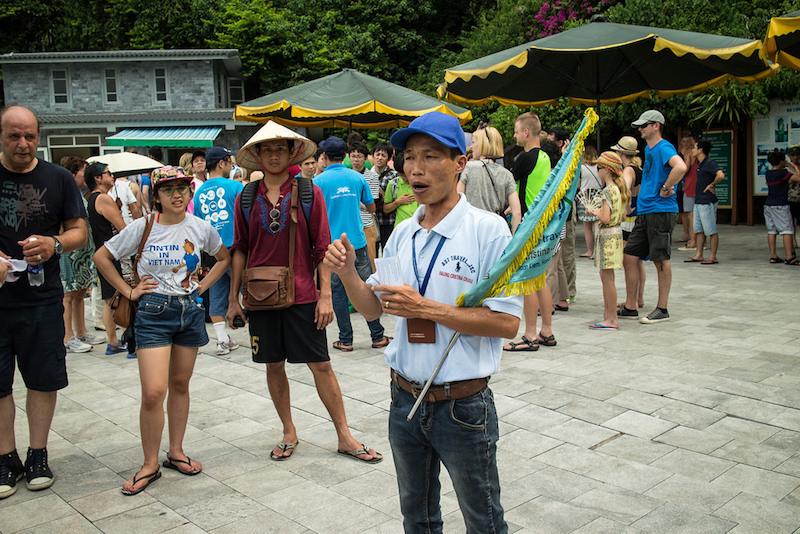
Sometimes if you’re out for the day doing a bit of hiking or looking to discover interesting museums, caves, ruins, waterfalls or whatever, you might run into a local that will start chatting to you in a friendly manner and might offer to take you to a hidden gem or two.
You go along with it, thinking he’s just being friendly and helpful and who knows, maybe he also wants the opportunity to chat to some foreigners and learn about them.
After he has led you to the place, he suddenly asks you for payment even though there had been no agreement beforehand that you were going to pay him to guide you to this place.He makes you feel guilty and pressures you to pay him some money even, though you would never have initially brought him along if you had known he was going to charge.
We've had this happen to us several times over the past few years. A boy in Nong Khiaw, Laos once led us along a trail for 15 minutes to a cave that was difficult to find and then asked us for money.
In Ratnapura, Sri Lanka, an elderly man offered to show us to a few gem museums and after we had explicitly told him at the beginning that we were not hiring him, he still went ahead and asked for payment at the end of the day.
In Ella, Sri Lanka, a man also helped show us the way to Ella Rock, a famous vantage point near Ella village that requires trekking through some pretty wild terrain. He accompanying us for a portion of the hike and we thought he was just being helpful but he chanced his luck at the end by asking for money.
How to avoid it?
If a local person in Southeast Asia offers you assistance or offers to take you somewhere that requires anything more than a modicum of effort on their part, be very careful.Don't just go along with it and hope they don't ask for money.
If you do accept their help, make it clear beforehand that you will not be paying any money for their assistance. If that doesn't scare them off, they might just be genuinely helpfulbut they also may still ask for money latereven if you've made it explicitly clear that you're not hiring them as a guide.
The only 100% sure way to avoid this scenario arising is to avoid taking any help or assistance whatsoever from local people, although that's not really a practical stance for most travellers.
#20 - ATM Machine Scams
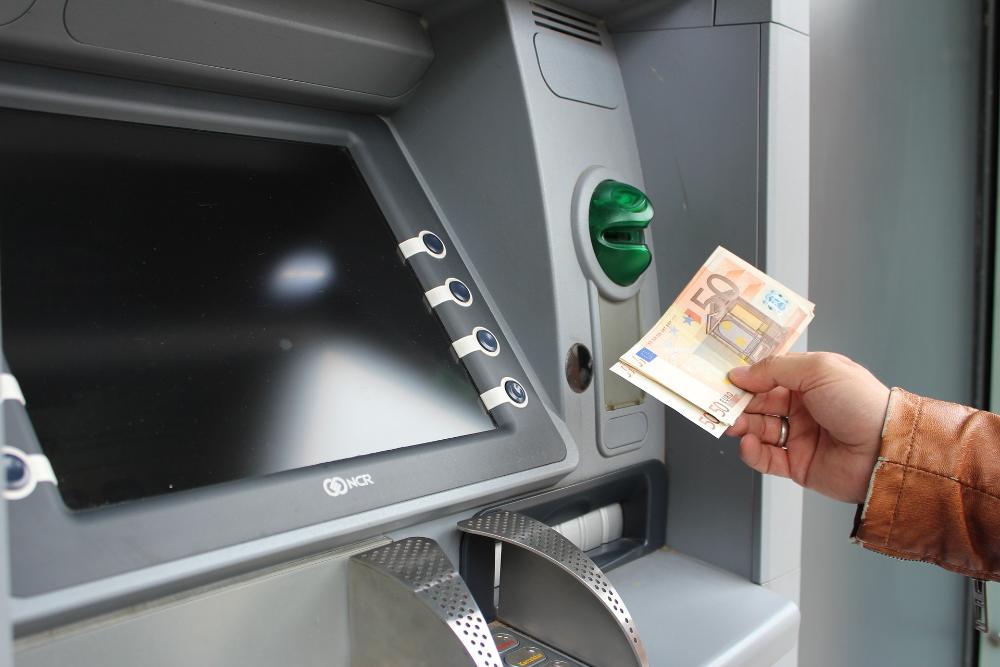
There are a few scams that travellers can fall prey to when withdrawing cash from ATM machines. Skimming devices placed by criminals inside the machine can capture your card details for example.
However, the most common scam is one perpetrated by the banks themselves, curiously enough. It's called dynamic currency conversion or DCC for short and we talk about it and other ways banks make big profits from travellers in our detailed article about travel banking fees here.
Some ATM machines offer you the choice to be billed in either the local (foreign) currency or your home currency when you try to make a cash withdrawal.
DCC or dynamic currency conversion is the 'service' that converts the bill to your home currency at the point of sale. Giving you this 'service' might seem generous but really you are simply being given the choice to willingly opt into a scam that you think is for your own benefit but is in fact designed to profit from your ignorance.
Essentially what happens here is that you allow the foreign bank to use their own fictitious and unfavourable exchange rate (as opposed to the official card network rates) to determine how much money they’ll debit from your account.
When you choose to be billed in the home currency like this, you virtually always lose additional money to the bank and that’s why it’s a scam; the home currency option doesn’t exist for your benefit, only for that of the bank.
The scam works so effectively because many tourists and novice travellers are unaware of the large financial losses incurred by opting to be billed in their home currency and so this scam actually proves to be quite successful for the banks.
How to avoid it?
It's an easy scam to avoid really, since you do get the choice. Always choose to be billed in the local (foreign to you) currency and let your card network handle the conversion instead.
#21 - Hotel & Guesthouse Scams
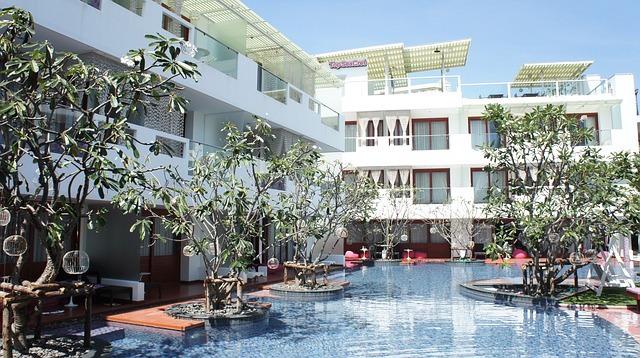
Scam (a) - Service Charge Scam
Thankfully, this scam is rare but we did come across it for the first time in Sri Lanka. We stayed in a very ordinary budget hotel, the cheapest accommodation we could find in that particular town. We received no special service, no included breakfast, no hot water, no tea and coffee, nothing.
Anyway, at the end of our stay we went to pay the bill and unbelievably, the owner had tacked on a service charge in addition to the room cost. We explained that we wouldn’t be paying the service charge because there was no service provided.
At first he wasn’t listening to our protestations but we just started shouting louder and more angrily at him until he finally conceded defeat and cancelled the charge from the bill.
Scam (b) - Snacks & Drinks Scam
This is a clever little trick that some hotels use to earn a bit of extra money from their guests. Some hotels will leave bottled water, cans or bottles of beer and even tempting snacks and other goodies in the hotel room without making it explicitly clear that the guests will be charged if they consume these items.
Some guests will assume that they’re freebies that are included with the price of the room and then later get a nasty shock when it becomes apparent that not only do they have to pay for the items that they consumed, but also that the hotel is charging exorbitantly for them.
#22 - The Hitchhiking Scam

The great thing about hitchhiking in Southeast Asia is that it's free... if you don't get scammed that is. Yes it's possible to get scammed here, even while hitchhiking.
When you get picked up by a motorcyclist, truck, car or other vehicle, you might think the driver understands the concept of hitchhiking and maybe they do, but they might try to pull a fast one one on you anyway.
Sometimes it becomes apparent when you reach your destination that the driver is expecting money, either because he went out of his way to drop you there or because he's just taking advantage of the language barrier and making it look as if there was a misunderstanding right from the beginning on your part.
How to avoid it?
It's a good idea to confirm beforehand that it's a 'lift' and not a taxi service you want. Sometimes this can be difficult with the language barrier but you can always learn to speak a few essential words and phrases like 'free' and 'no money' to try to get the message across.
Final Thoughts
With all this talk of scams, deceit and dishonesty you'd be doing well to not have entirely lost your faith in humanity by this point.
Remember however that this article is a collection of all the scams and tricks that we've encountered in multiple countries over a three-year period of travelling and plenty more that we've never personally experienced. Chances are that you'll encounter only a small fraction of all of the scams that we've detailed here if you're going on a short trip.
The truth is that the majority of people in the Southeast Asian countries are good, honest, friendly people who wouldn't dream of deceiving foreign tourists.
In Vietnam for example, people brought us petrol from miles away when we ran out of petrol between gas stations. We were shown incredible friendliness and kindness by the local people in Indonesia.
In all the countries, we found the local people amazingly generous in offering us free rides on the back of their motorbikes or in their vehicles, even going well out of their way to drop us where we wanted to go.
In conclusion, the existence of these scams is definitely no reason to avoid Southeast Asia. There's so much beauty, magic and splendour in this part of the world that outweigh the negative aspects like scams and unfair tourist prices.
Having read this article you're already one step ahead of the curve, so just bring with you a good dose of common sense and prudence and you'll surely be prepared for most of what this region will throw at you.
Have you ever travelled in Southeast Asia and experienced any of these scams? Perhaps you encountered a scam that wasn't on our list? Please share your experience with us in the comments below and we'll get back to you as soon as we can. Thanks for reading!
JOIN OUR LIST
SUPPORT US
FOLLOW US
ABOUT US
Our names are Eoghan and Jili and we hail from Ireland and India respectively.
We are two ardent shoestring budget adventure travellers and have been travelling throughout Asia continuously for the past few years.
Having accrued such a wealth of stories and knowledge from our extraordinary and transformative journey, our mission is now to share everything we've experienced and all of the lessons we've learned with our readers.
Do make sure to subscribe above in order to receive our free e-mail updates and exclusive travel tips & hints. If you would like to learn more about our story, philosophy and mission, please visit our about page.
Never stop travelling!
FOLLOW US ON FACEBOOK
FOLLOW US ON PINTEREST
-lw-scaled.png.png)
